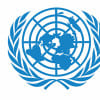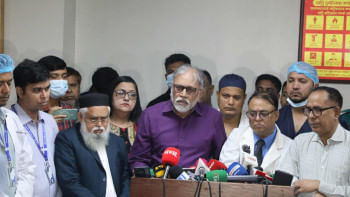An agenda for humanity

More people desperately need humanitarian assistance than at any time since the founding of the United Nations. More warring parties are brazenly violating international humanitarian law. More resources than ever are needed to meet sharply escalating humanitarian needs. Yet we face the largest-ever funding shortfalls.
For these reasons and more, I am convening the first-ever World Humanitarian Summit on May 23 and 24 in Istanbul. I am urging global leaders, international organisations and others to commit to deliver more and better for those in greatest need. There is no time to lose.
Climate change is affecting lives and livelihoods across our fragile planet. Brutal and seemingly intractable conflicts, violent extremism, transnational crime and growing inequality are devastating the lives of millions of men, women and children and are destabilising entire regions. More people have been forced to flee their homes than at any time since the Second World War.
Around the world, more than 125 million people need humanitarian assistance. If they were all in one country, it would be the eleventh largest nation on earth, and one of the fastest growing.
Today's complex challenges cross borders. No single country or organisation can address them alone. We need to restore trust in the ability of our national, regional and international institutions to confront these challenges.
A sense of shared humanity must shape our politics and drive financial decisions. In advance of the Summit, I have set out an Agenda for Humanity as a framework for action, change and mutual accountability. It has five core responsibilities.
First, leaders must intensify efforts to find political solutions to prevent and end conflict. The enormous human and economic cost makes conflict the biggest obstacle to human development. We must move from managing crises to preventing them.
Second, countries must uphold the norms that safeguard humanity. This means complying with international humanitarian and human rights law, and stopping the bombing and shelling of civilian targets and areas. It also means committing to national and international justice and ending impunity.
Third, we must leave no one behind – and we must reach those who are furthest behind, first. This means transforming the lives of the most vulnerable, including those living in conflict and in chronic poverty, and those living with the risk of natural hazards and rising sea levels. We must reduce forced displacement, provide more regular and lawful opportunities for migration, empower women and girls and ensure quality education for all. We cannot meet the Sustainable Development Goals, agreed by world leaders last September, if we do not reach these people.
The fourth core responsibility is to move from delivering aid to ending need. We need to close the humanitarian-development divide for good. We must also anticipate crises, not wait for them to happen. We must strengthen local leadership and capacity, reduce vulnerability, and increase the resilience of people and communities, who will always be the first and last responders in crises.
Fifth, we must find smart and innovative ways of mobilising funds. This will require diversifying and expanding the resource base and using a wider variety of financing tools. I have proposed a new international financing platform with the World Bank to identify mechanisms to finance our response to protracted crises.
The Agenda for Humanity provides key actions and strategic shifts which the world requires to reduce humanitarian needs and contribute to achieving the Sustainable Development Goals. I urge world leaders to come to the World Humanitarian Summit committed to promote sustainable human progress and a life of dignity and security for all.
The writer is Secretary-General of the United Nations. This op-ed was part of the report, "One Humanity: Shared Responsibility", presented recently to the General Assembly for the World Humanitarian Summit to be held in Istanbul in May.

 For all latest news, follow The Daily Star's Google News channel.
For all latest news, follow The Daily Star's Google News channel. 








Comments